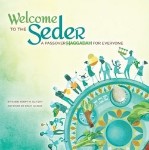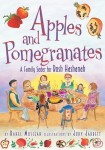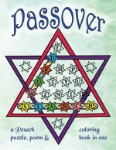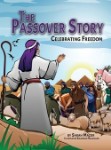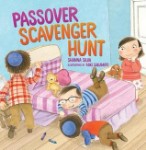Empathy, ethics, experiment: Thoughts on “The Journey of Sarah Levi-Bondi” by R. P. Toister

Buy this book at Amazon or for Kindle or at Bookshop
What is the antonym of empathy? As always, the answer is “it depends”. Early on the young girl, who later becomes the mother of the titular character of “The Journey of Sarah Levi-Bondi” is established as a person with extremely deep empathy. Thus the author created a strong contrast which is essential for great drama. The contrast I am referring to is between empathy and the essence of the Holocaust. The latter in many ways is the opposite of empathy. At the lower end of the antonyms is indifference. The nazis were indifferent ot the suffering of Jews and other peoples and groups they deemed inferior. However indifferent is not a strong enough word for them. Any, all and the combination of the first four antonyms listed in “Merriam-Webster” provide a better description :”hard-heartedness, mercilessness, pitilessness, ruthlessness.”
The core theme and message of the book is about the limits of empathy. The protagonist’s ancestors were killed in the Holocaust in the past. She very much fulfilled his father’s last request “You have to do something good in the world”, as she devoted her life to perfecting the bone marrow transplant process. What can be more noble than saving children’s lives? If you save a life (or more than one) at an early age you have no idea what kind of potential for the world you might enable, by the virtue of letting a person reach its fuller, adult potential. This is the clear and righteous message of the book and one of the reasons it was a joy to read.
Context for forming opinion matters. For example I was eager to discover whether Levi-Bond is a real historical figure or fictitious. Based on the book cover and the first few chapters she could have been both. While I was searching for the answer I realized my own biases. If the figure is real that gives more weight to the story in my mind than a literary figure. On the other hand I also demand more from the author in terms of historical accuracy of the places, people and events. After finishing the book I checked some of these details and I am convinced that he did excellent research and a lot of the named officers, events and locations are historically accurate. If you want to read a precise and at the same time well dramatized account of how the Jews from Rome were deported in 1943 I strongly recommend this book. (For a short summary check out he United States Holocaust Memorial Museum’s page on the topic.) I won’t spoil the question at the beginning of this paragraph, but let me assure you that by the end of the book you will know the answer.
I was slightly wary reading this book when I noticed that this is the first novel Toister wrote. Based on his bio he clearly is an accomplished psychologist and professor and author of several non-fiction books. However, I have read enough first novels by a number of authors to know that they are more often misses than hits in terms of literary quality. I was very pleasantly surprised in this case. His expertise in the medical field provided a vast advantage in describing the medical ethical issue that the book revolved around. His description of the protocols on how patients are selected for experimental treatments was the most exciting medical text I read in a while. Later on, the deliberation of the ethical aspects of what the protagonist had to deal with in making her major decision not just reflected the author’s knowledge of behavioral science but also was a stimulating read. This short, succint quote helped me to understand (second generation) Holocaust survivors’ attitude to life:
“Although Sarah had dated in college, she never had a serious relationship. Always anxious about loss, Sarah protected her feelings in an effort never to be hurt […] It was as if she constantly saw catastrophe on the horizon of her life, which was the lingering effect of the loss of her parents and little brother.”
Sometimes when I read a book I hear accompanying music. This time the short chapters set in a past timeline, on the train towards Auschwitz in 1943, intercut with the longer chapters, set in more recent time that also often described traveling triggered the memory of Steve Reich’s “Different Trains”. That was inspired by the contrasts of the composer’s trainrides as a child, during World War II in the US and European Jews trainrides at the same time to nazi concentration camps. It is a deeply moving piece of modern music built around the sharp juxtaposition of different experiences. Which is exactly how the book is structured too.
Finally an even more personal note and plea. When I was in college I signed up to become a bone marrow donor. The organization through which I did selected its name rather appropriately “Gift of Life”. It can literally mean saving someone’s life if you end up being selected to become a donor. It is a bit of a process but extremely rewarding. I encourage you not just to read this book but to sign up to become a bone marrow donor too.
The richness of Toister’s book is multilayered: history, psychology, redemption story, medical drama, moral lessons, and personal development are all intertwined into a coherent, seamless, engaging, thought provoking read. You can read it in any and many different ways, yet the dilemmas will linger with you afterwards. What would you have done in her situation? And why? Challenge yourself to read this short yet deep book and you won’t be disappointed.
Disclaimer: I have received a copy of this book and a small amount from the author which did not affect my review in any way.
Year first published: 2022

